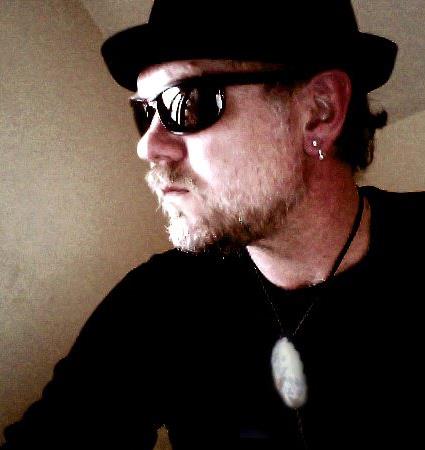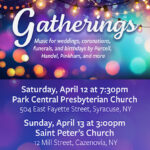Robert Price: White House Staff Pianist

The music world is always an interesting place to meet people. I became aware of Robert Price when the cellist in my group bought a cello from him. Nice cello. I recently met him where he was in attendance at our show in the front row. It’s always inspiring and somewhat unnerving when somebody of such musical stature is listening to every – last – drop – of – every – last – note – you’re making your way through your set. In this case it felt particularly comforting to have someone who might understand more fully, what we’re doing musically.
Price himself, has enjoyed an astonishing, robust and colorful career as a jazz pianist having rubbed shoulders with Bobby Rydell, Brenda Lee, Aliza Kashi and Bobby Darin. He’s worked with local favorite Ronnie Leigh among many others in the area and elsewhere.
Here he is, very kindly taking a few moments for us here at Sounds of Syracuse.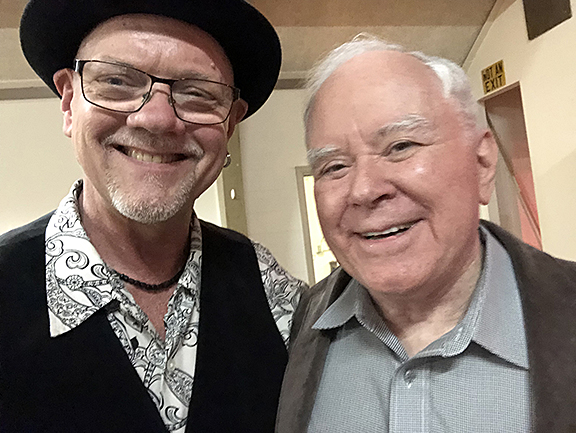
Chuck Schiele: Thank you, Mr. Price, for doing this interview.
Robert Price: Thank you, Chuck. It’s my pleasure.
CS: How did your music life begin?
RP: My mother and father were both private music teachers, teaching in both our home and their studios in the old Clark Music Building in downtown Syracuse. My earliest musical memory is of crawling up into a low easy chair in the evening and going back to sleep listening to them play the Brahms Violin Sonata in G Major. I asked for music lessons, and when my hands were big enough to span a fifth on the piano, Mom started me.
CS: Please share with us your path as a musician.
RP: In high school, I accompanied the Herman Branch Chorale in Syracuse. I attended Potsdam State Teachers College starting in 1959, then took a break to join the Marine Corps in 1961. While in the 2nd Division Band at Camp Lejeune, I studied informally with John B. Williams, a budding bassist. He went on to play in the Tonight Show band under Doc Severinson, then played in Nancy Wilson’s group for 30 years. JB taught me a great deal about chord voicing and jazz style. In the late 1960s I led the trio at the Coda restaurant in Syracuse, then bought a Hammond B3 organ and toured for four years as organist and arranger with various show bands.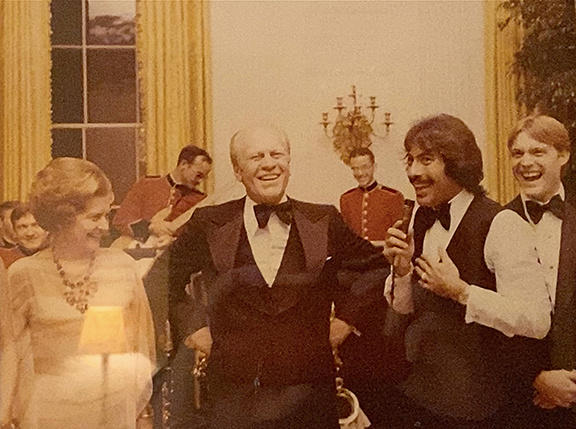
CS: You also had a stint with the White House as the resident pianist. Please tell us what that gig is like…playing for the President, heads of state, and royalty figures.
RP: All four service bands alternate playing at the White House, so I played as the White House Pianist with the Marine Band from October of 1974 until the spring of 1981. The gig was varied, ranging from solo cocktail piano during luncheons and tours to alternating with the Marine Band Orchestra during State Dinners.
CS: Please share with us a re-tellable story from those experiences.
RP: Tony Orlando was very popular during the Ford administration, and he was the entertainment for one memorable State Dinner. Mrs. Ford came up to me as I was playing with a small group and asked, “Would it be all right if Tony Orlando sat in?” We performed “A Foggy Day in London Town” as our first number, and he sang for the whole rest of the gig! It was a lot of fun!
CS: Otherwise you’ve spent a lot of time as a jazz pianist. Please, share some of the better moments from those days.
RP: I was visiting JB Williams in New York City and wound up sitting in with the great trombonist J.J. Johnson in the Rainbow Lounge. His pianist was relegated to the organ, and I played the rest of the gig, which was great fun!
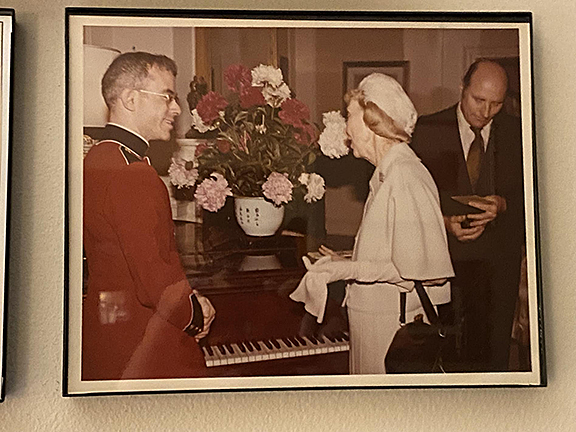 CS: To what and/or whom do listen to or do to inspire yourself as a musician.
CS: To what and/or whom do listen to or do to inspire yourself as a musician.
RP: I enjoy going out to catch local groups such as your own Qua4tro, Dave Novak and his various groups, The Cadleys, and others.
CS: What are your thoughts on the music scene here in Syracuse?
RP: I’m happy there are places for musicians to work here. We don’t go out very much, but have enjoyed listening to Ronnie Leigh at several venues around town.
CS: What would your advice be to a budding musician?
RP: Practice! Learn to sight read, as there are many more opportunites if you have the skills. Sit in with as many groups as will have you, and learn how to support their sound effectively.
CS: What are your thoughts on the general condition of music, today?
RP: I stopped commenting on popular music when I found it less interesting to me. Back in the 70s, a much older drummer made some disparaging remarks about “this rock and roll s[tuff]” – I resolved not to sound like that when I got older.

